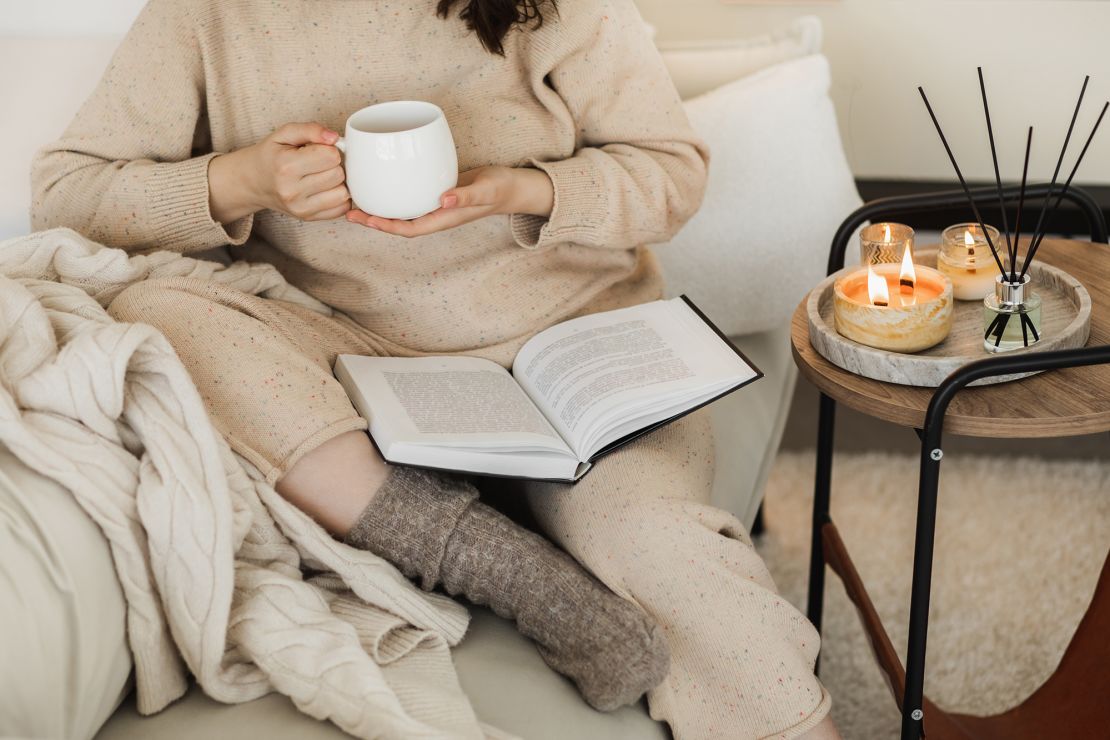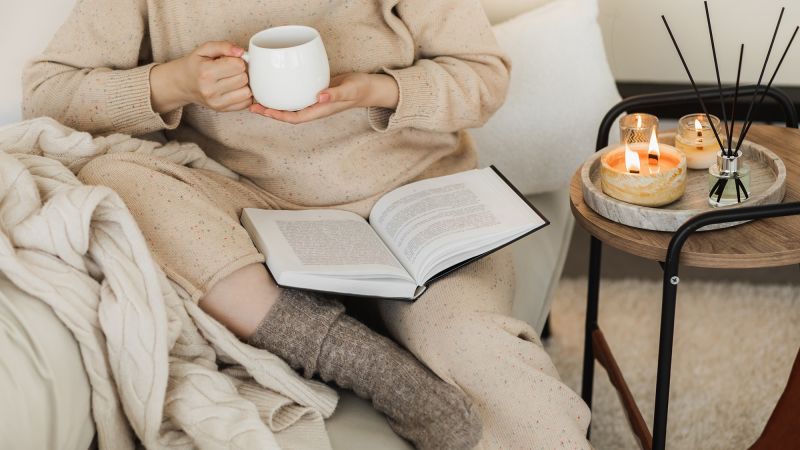Editor’s note: Kara Alaimo is an associate professor of communication at Fairleigh Dickinson University. Her book “Over the Influence: Why Social Media Is Toxic for Women and Girls — And How We Can Take It Back” was published in 2024 by Alcove Press. Follow her on Instagram, Facebook and Bluesky.
CNN
—
Like most parents, I’m exhausted from juggling the needs of my family and work in the 21st century. But after the kids fall asleep, I’ve been escaping to southern India in the early 20th century. It’s warm there, I’m surrounded by water and the air smells like jasmine.
I’ve been pulling this off with Abraham Verghese’s gorgeous book “The Covenant of Water.” It’s been just the opportunity to relax that I’ve badly needed.
During a particularly rough spell in which my kids and I were constantly ill this winter, I read Glynnis MacNicol’s “I’m Mostly Here to Enjoy Myself: One Woman’s Pursuit of Pleasure in Paris” and vicariously traipsed through Paris as a single person.
So-called bibliotherapy can be a powerful wellness practice, according to Emely Rumble, a Springfield, Massachusetts-based licensed clinical social worker who has been prescribing it to her clients for 15 years.
For most of us, “there’s not really too many opportunities to slow down and turn inward,” said Rumble, who teaches a course on bibliotherapy at Queens College in New York City. She is also author of “Bibliotherapy in the Bronx,” a book to be published in April.
Reading offers a break from work and caring for other people, she said, and it can also be a way to gain personal insights.

Books often have powerful effects on people, making readers cry or causing them to get angry. “If an emotion comes up for you while you’re reading, there’s some information there for you,” Rumble said. If readers stop and think about what’s making them have the reactions they’re experiencing, they can gain valuable knowledge about themselves.
Similarly, she said, if readers find themselves connecting emotionally with certain characters, they should consider what’s making them attach to those individuals.
Rumble recommended readers keep journals on hand to write down what they learn about themselves.
Reading about and reflecting on a topic also can provide an opportunity to see things from other people’s points of view and even to reconsider your beliefs, Rumble said.
“We can realize that, OK, maybe I am thinking about something in black-and-white terms. Or maybe I am catastrophizing a little bit too much,” she said. “Sometimes we read something (to help) reframe our perspective.”
Rumble said stories also remind readers that they’re not the only ones who are suffering.
“We’re all impacted by the same societal ills, maybe on different levels, in different ways,” she said. This realization can help people feel less alone.
Knowing who you are as a reader is important, whether you’re a fan of historical fiction, science fiction, biographies, romance, young adult fiction or something else. Your local librarian or a site like Goodreads can help.
The device for reading is your choice. Some people like audio books, while others read hard copies or use e-readers. What matters is that it’s enjoyable for the person.
While some people like me find reading to be a way to relax and gain insights on our own, Rumble said therapists also prescribe books to their patients as a form of learning and healing. “Traditional talk therapy, having a therapist ask you very personal questions or details about traumatic experiences, can feel really harrowing,” she said.
“When you’re looking at it through the lens of a fictional character,” she said, “it becomes a lot easier to talk about some of those painful memories or to consider different experiences that you’ve had.”
Despite the benefits of books, people have been reading less. The average American read 12.6 books during the previous year — the lowest number since 1990 — according to a 2022 Gallup survey. As a college professor, I find that, overall, my students read less now than they did when I started teaching a decade ago.
But Rumble advised that it’s best not to set goals for how many books you’ll get through in a week or a year.
Once we start focusing on how much we’re reading, “we take the joy away from the benefits of slowing down,” she said.
Rumble recently spent two months reading Imani Perry’s book “Black in Blues: How a Color Tells the Story of My People.” As she read along, she listened to blues music and checked out other books that Perry referenced.
“I feel like that’s when reading gets really enjoyable because you’re really engaging, not just with the text, but you’re having fun with what the author is trying to impart to you as a reader,” she said.
When I want to escape to Italy, I love soaking in Elena Ferrante’s Neapolitan novels and Jo Piazza’s “The Sicilian Inheritance.” Reading Donna Tartt’s “The Goldfinch” recently reminded me of the power of art and prompted me to take my young daughters to the Metropolitan Museum of Art, where they were mesmerized by artifacts from ancient Egypt.
Reading can be a powerful way of escaping, relaxing and realizing truths about ourselves and the world. That’s why I’m heading back to India tonight.

